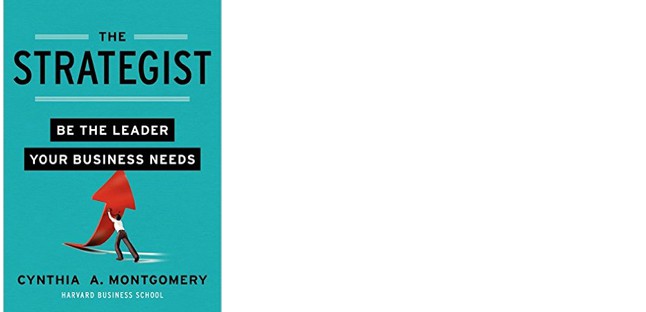Back to all posts
Latest posts
What’s going on at parkrun?
Virtue-signalling all the way to the bank
Bud Light: brand purpose or virtue-signalling?
The Coddling of the American Mind, by Greg Lukianoff and Jonathan Haidt
Belonging, by Owen Eastwood
Such a simple thing
The Long Win, and The Scout Mindset
The Cult of We by Eliot Brown and Maureen Farrell
Coffee and covid modelling
John Lewis: so right-on it’s wrong
By theme
Marketing strategy
Insight & metrics
Innovation & inspiration
Brand & positioning
Marketing communications
Business purpose
Leadership
By industry sector
Financial services
Retail
FMCG
Technology & start-ups
Consumer services
Business to business
Other sectors
By type
Books
Comment
Quotes
Thought leadership
Age UK are in trouble for doing a deal with an energy provider that raised £6m a year for the charity. It’s tough, and probably feels unfair to them. But this is what happens when the operational needs of the business get dissociated from its core purpose. Fundraising is essential but it is not why Age UK exists.
The charity aims to help everyone make the most of later life. Undoubtedly some older people are confused by energy tariffs, Read More
John Lewis Opticians have just launched. How will they do? JLP’s mutual ownership model is much loved and admired. It’s working well. The total group’s revenues have grown by 50% in the past six years, through a recession. With profit distribution to all employees, known as partners, John Lewis has become the new Virgin, champion of the customer. I would love to buy a car from them, or have them sell my house. But the world of opticians doesn’t need John Lewis. Read More
We seem to be moving from a words-dominated world to a picture-led one. YouTube is the world’s second-largest search engine (its owners Google tell us). It’s never been easier to take and share pictures, and it’s happening a lot. See Pinterest, Instagram, Twitter, et al. Marketing tech start-ups that do something with video are springing up all over the place.
That could make us think words don’t matter any more. Who reads when they can watch a Vine or YouTube it? Read More
I knew I was cutting it fine to catch the 19.20 from Waterloo the other night. But I’ve done it often, and know which platform to head for. The train was still showing on the board. So I was more surprised than anything else when the doors closed in front of me, and I watched from platform 3 as the train pulled out. “But it’s leaving early!” I protested to the unruffled train controller who was right beside me as he waved the train off. Read More
I have a relationship manager at the bank where I have my business account. I wonder what relationship he’s managing.
Is that unfair? Here’s a bank trying to do better. The problem with their monthly courtesy call is that it is content-free. They offer me nothing. No information, no news, nothing that could be useful to me. In truth it’s unlikely they’ll chance upon something I want to hear anyway. It feels like something they’re measuring for their own purposes: “We call all our business customers at least six times a year and check all is well.” Read More
It’s all the rage to talk about purpose in business (I’m keen on it myself) but business also has to be about the numbers. The financial results are the ultimate numbers. Targets, KPIs and incentives are management tools to drive and track progress. But, there’s more to the old adage, “what gets measured gets done” than setting KPIs. Not all customer metrics are good for customers; even the best-intentioned metrics can have unintended consequences. Here are a couple of examples. Read More
I’m always on about the importance of having a clear business purpose – not necessarily the lofty do-good type that P&G, Unilever and co now seem to think they must have, just a reason why an enterprise exists, what it’s there for, in terms that its customers would recognise and value. This Harvard academic thinks so too, and makes the case brilliantly in this pithy book. It’s an accessible, human approach to business strategy development, Read More
According to the service profit chain theory, satisfied employees deliver satisfied customers, which means sales will rise and profits will grow. So in a service business, if you focus on keeping employees happy and motivated, that’s job done. Who could disagree with that? I can.
I once worked with a contact centre business in the US mid-west which had the happiest employees in the state, and probably in the entire contact centre industry in the USA. Read More
Banks, eh? Easy to knock them, but what can we learn from their travails? Well, they illustrate perfectly how a. incentives drive behaviour, and b. delighting shareholders is unlikely to be a winning strategy in the long term. John Kay’s book Obliquity explores the principle that complex goals are best achieved indirectly, with examples of companies which achieved sustainable profitability by focusing not on their profit goals but on what their customers needed from them. Read More
Back to all posts
Latest posts
What’s going on at parkrun?
Virtue-signalling all the way to the bank
Bud Light: brand purpose or virtue-signalling?
The Coddling of the American Mind, by Greg Lukianoff and Jonathan Haidt
Belonging, by Owen Eastwood
Such a simple thing
The Long Win, and The Scout Mindset
The Cult of We by Eliot Brown and Maureen Farrell
Coffee and covid modelling
John Lewis: so right-on it’s wrong
By theme
Marketing strategy
Insight & metrics
Innovation & inspiration
Brand & positioning
Marketing communications
Business purpose
Leadership
By industry sector
Financial services
Retail
FMCG
Technology & start-ups
Consumer services
Business to business
Other sectors
By type
Books
Comment
Quotes
Thought leadership








